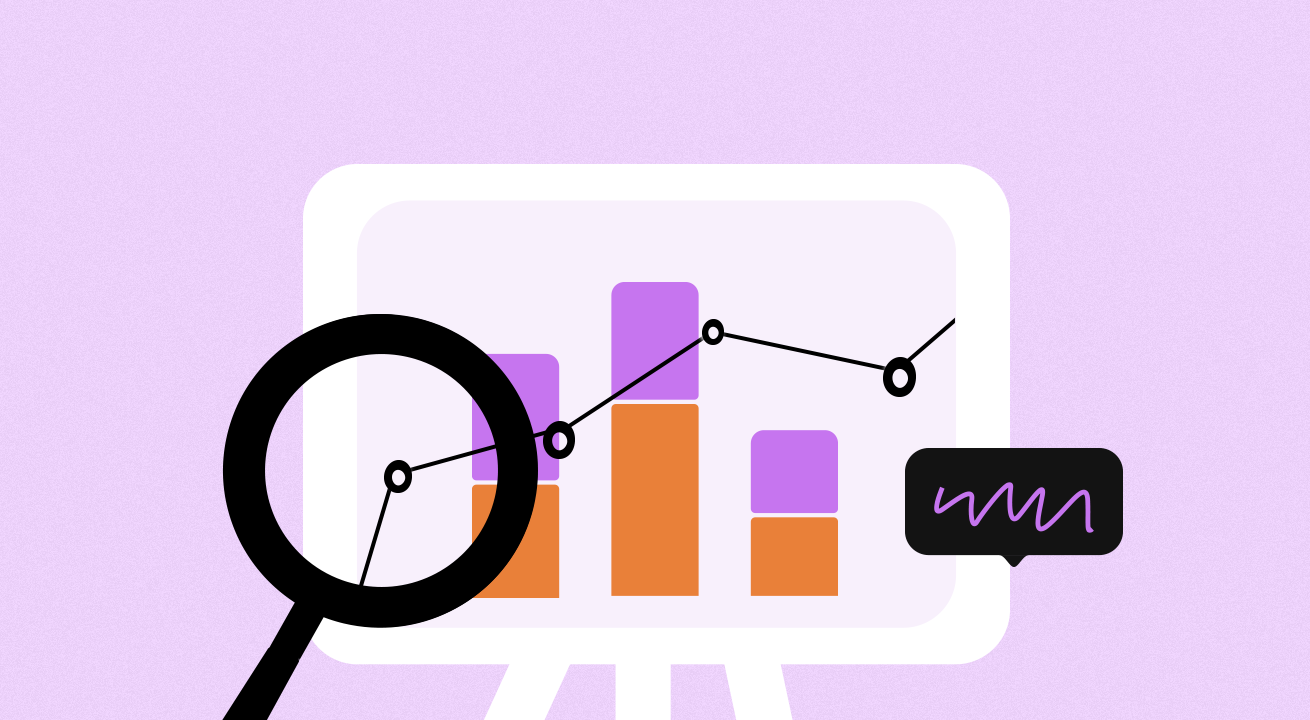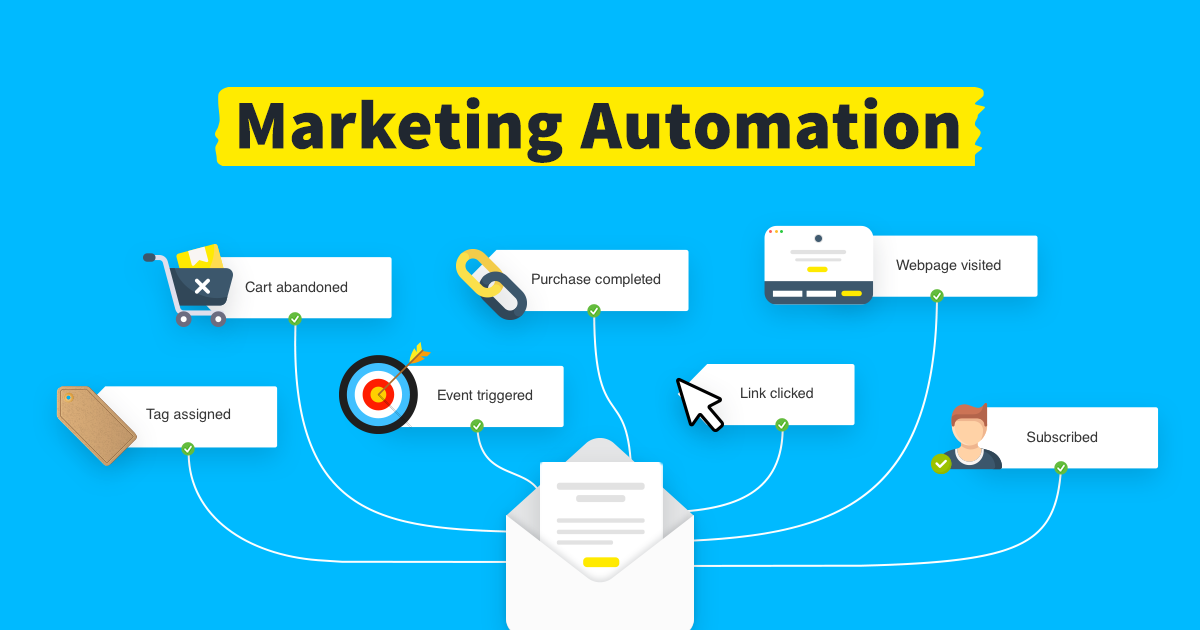
Is AI enhancing ecommerce digital marketing? Absolutely. As online retail continues to surge, businesses are constantly searching for smarter ways to connect with customers. AI is stepping in as a powerful ally, transforming how ecommerce brands engage, market, and drive sales. By automating and optimizing various marketing processes, AI enables companies to understand customer behavior better, predict trends, and personalize experiences like never before. Get ready to uncover how AI is not just an addition to your digital toolkit but a pivotal force reshaping the future of ecommerce marketing.
The Evolution of Ecommerce Digital Marketing
In the ever-shifting landscape of ecommerce, digital marketing strategies have seen significant transformations. The journey from traditional methods to AI-driven techniques marks a remarkable evolution. Let’s explore how marketing tactics have changed over time and understand the limitations that led to the quest for more advanced solutions.
Traditional Marketing Methods
Ecommerce digital marketing began with tried-and-true methods that many businesses still use today. These methods, although foundational, have their own set of challenges.
- Email Campaigns: One of the earliest forms of digital marketing, email campaigns allowed businesses to directly reach customers’ inboxes. Companies would create mailing lists, send out newsletters, promotions, and announcements. The success of email marketing largely depended on the ability to craft compelling messages that could capture the reader’s attention.
- Basic Data Analytics: Before the advent of sophisticated AI tools, marketers used basic data analytics to understand customer behavior. This included tracking website visits, click-through rates, and sales data. Simple tools and spreadsheets were used to compile this data, which then helped in making informed marketing decisions.
- Content Marketing: Creating engaging content such as blog posts, articles, and social media updates was another staple. Companies focused on producing high-quality content that could attract and retain a clearly defined audience. The idea was to provide value and build a relationship with potential customers through informative and entertaining content.
Limitations of Traditional Methods
Despite the effectiveness of traditional methods in the early days, they were not without significant constraints. These limitations highlighted the need for more advanced, AI-driven solutions in ecommerce digital marketing.
- Lack of Personalization: Traditional email campaigns often felt impersonal, as the same message was sent to a large audience. Without sophisticated segmentation, it was challenging to tailor content to individual preferences, leading to lower engagement rates.
- Time-Consuming Processes: Collecting and analyzing data manually was a tedious process. Marketers had to sift through vast amounts of information to garner insights, making it labor-intensive and time-consuming.
- Limited Reach and Interaction: Traditional methods like content marketing depended heavily on organic reach. Engaging the right audience required significant effort and often resulted in limited interaction. It was difficult to measure the effectiveness of these campaigns in real-time.
- Static Strategies: Many traditional marketing strategies were static, relying on past data without adapting to real-time changes. This lack of agility meant businesses couldn’t respond quickly to market trends or shifts in consumer behavior.
The evolution from these traditional methods to AI-powered solutions represents a significant shift in how ecommerce digital marketing operates. By addressing these limitations, AI brings a new level of efficiency, personalization, and insight that helps businesses thrive in today’s competitive landscape.
Stay tuned as we dive deeper into the role of AI in this transformation and explore how it continues to shape the future of ecommerce digital marketing.
Introduction to AI in Ecommerce

As technology advances, AI plays an increasingly vital role in ecommerce digital marketing. Whether you’re a small business owner or a marketing professional, understanding how AI can transform your marketing strategies is essential. Let’s dive into the basics of AI and the key tools enhancing ecommerce today.
What is Artificial Intelligence?
Artificial Intelligence (AI) refers to the simulation of human intelligence processes by computer systems. AI leverages algorithms and machine learning to perform tasks that typically require human intelligence, such as problem-solving, pattern recognition, and decision-making.
- Machine Learning (ML): This subset of AI involves training algorithms on large datasets to recognize patterns and make predictions. Think of it as teaching a computer how to learn from data.
- Natural Language Processing (NLP): This enables machines to understand and respond to human language. Ever talked to a customer service chatbot? That’s NLP in action.
- Computer Vision: This allows AI to interpret and make decisions based on visual inputs, much like how humans process images and video.
In ecommerce digital marketing, AI systems can analyze vast amounts of data to uncover insights, predict trends, and personalize user experiences. It’s like having a tireless employee who never sleeps and always knows what your customers want.
AI Tools and Technologies
Several AI-driven tools and technologies help ecommerce businesses improve their marketing efforts. These tools range from customer service to data analytics, offering a comprehensive approach to modern marketing.
- Chatbots: These automated systems provide 24/7 customer support. They can handle common queries, recommend products, and even process orders. Chatbots use NLP to understand and respond to customer questions effectively.
- Recommendation Engines: Ever wondered how Amazon always knows what you might like? That’s a recommendation engine at work, using ML to analyze your browsing history and recommend products tailored to your preferences.
- Predictive Analytics: This tool analyzes current and historical data to forecast future trends. It helps marketers make informed decisions, from inventory management to targeted promotions.
- Personalization Engines: AI can deliver personalized email campaigns, customized web experiences, and targeted advertising based on user behavior. It’s personalization taken to the next level, ensuring that each customer feels like the marketing message is crafted just for them.
- Sentiment Analysis Tools: These tools gauge customer sentiment based on reviews and social media posts. Businesses can quickly understand how customers feel about their products and make necessary adjustments.
By integrating these AI tools, ecommerce digital marketing becomes more efficient and effective. The ability to automate tasks, analyze large datasets, and develop personalized experiences lets businesses stay ahead of the competition.
In the next section, we will explore how these AI technologies are applied in real-world ecommerce scenarios, transforming customer interactions and driving sales.
Stay tuned for more insights into the practical applications of AI in ecommerce digital marketing.
Personalization and Customer Experience

In today’s fast-paced ecommerce world, standing out from the crowd is more challenging than ever. One way to achieve this is by offering a personalized experience to each customer. Artificial intelligence (AI) is the secret weapon behind these customized interactions, ensuring that every shopper feels unique and valued.
AI-powered Product Recommendations
Imagine walking into a store, and the salesperson knows exactly what you like, your size, and even your favorite colors. That’s the kind of personalized shopping experience AI brings to ecommerce through product recommendations. AI algorithms sift through mountains of data to understand each customer’s preferences.
- Browsing History: AI looks at what products a customer has viewed or searched for. If someone spends a lot of time looking at running shoes, the system will recommend similar items.
- Purchase History: What customers bought in the past is a strong indicator of what they might want to buy in the future. AI uses this data to suggest complementary products.
- Behavioral Patterns: By examining patterns like the time spent on product pages or items added to the cart, AI can make educated guesses about customer interests.
These personalized suggestions are akin to having a personal shopper who knows your likes and dislikes. They significantly improve customer satisfaction by making the shopping experience more enjoyable and relevant. No more endless scrolling through products that hold no interest – AI brings the items you’re likely to love right to your fingertips.
Dynamic Pricing Strategies
Dynamic pricing is another area where AI shines in ecommerce digital marketing. Unlike static pricing, dynamic pricing adjusts the cost of products based on various factors, making it a flexible and competitive pricing strategy. How does AI make this possible? By analyzing real-time data and customer behavior.
- Market Demand: AI monitors current market trends and adjusts prices based on demand levels. For example, during a sales spike in winter coats, the price may go up due to high demand.
- Customer Behavior: By studying how customers interact with products, AI identifies the optimal price points. If a particular user frequently buys discounted items, AI may offer them a special discount to close the sale.
- Competitor Pricing: AI also keeps an eye on competitors’ prices. If a competitor lowers their prices, the AI system can swiftly adjust to offer a better deal, keeping your ecommerce site competitive.
This dynamic approach ensures that prices are always optimized for both customer appeal and business profitability. Shoppers get deals tailored to their purchasing habits, while businesses maximize their sales and profits. Dynamic pricing is like having a savvy market analyst who works 24/7, ensuring your business stays ahead of the curve.
AI-driven personalization and dynamic pricing strategies are not just enhancements—they’re revolutionizing the customer experience in ecommerce. By leveraging AI, businesses can create a tailored, responsive shopping environment that meets the needs of each individual customer, ultimately driving satisfaction and loyalty. And in a market as competitive as ecommerce, that can make all the difference.
Enhanced Customer Segmentation

As ecommerce continues to expand, businesses are realizing that not all customers are the same. In fact, treating them as such can lead to missed opportunities and wasted marketing efforts. AI is a game-changer in this arena, offering tools to enhance customer segmentation like never before. With advanced techniques like behavioral analysis and predictive analytics, AI helps create more accurate and effective customer segments, paving the way for targeted, efficient marketing campaigns.
Behavioral Analysis
Imagine walking into your favorite store and having the salesperson already know which styles you prefer, the brands you love, and even the types of promotions that catch your eye—without you saying a word. This seemingly magical insight is what AI delivers through behavioral analysis.
- Tracking Interactions: AI algorithms can monitor and analyze every click, scroll, and purchase made by a customer. By compiling this data, businesses can understand what captures a customer’s interest on their website.
- Building Detailed Profiles: These interactions help in creating detailed customer profiles. For instance, AI can identify that a particular customer always reads reviews before making a purchase. This insight enables companies to highlight user reviews more prominently for that customer.
- Segmenting Based on Actions: AI doesn’t just stop at individual profiles; it uses this behavioral data to group customers into segments based on their actions. These segments can include “bargain hunters,” “impulse buyers,” or “brand loyalists,” allowing for hyper-targeted marketing strategies.
Through behavioral analysis, ecommerce digital marketing becomes more strategic and precise. It’s like having a spotlight on each shopper, highlighting their preferences and habits so that businesses can respond with tailored offerings.
Predictive Analytics
Future-proofing your marketing strategies requires more than just understanding current customer behavior; it involves anticipating their needs and actions. This is where AI-driven predictive analytics comes into play, offering a crystal ball for ecommerce marketers.
- Forecasting Trends: Predictive analytics leverages vast datasets to forecast future trends. For example, if data indicates a rise in eco-friendly products, marketers can stock up and promote these items ahead of the curve.
- Predicting Purchase Behavior: By analyzing past purchase history and browsing patterns, AI can predict what a customer is likely to buy next. This insight can help in crafting personalized recommendations and timely offers that resonate with the customer.
- Optimizing Marketing Efforts: Predictive models also help optimize marketing campaigns. AI can identify which messages are likely to convert specific customer segments. For example, if a particular customer segment responds well to limited-time offers, these can be strategically deployed to boost engagement and sales.
- Reducing Churn: Perhaps one of the most critical benefits is reducing customer churn. Predictive AI can flag customers who show signs of disengagement, allowing businesses to take proactive steps like offering special discounts or personalized re-engagement campaigns.
Predictive analytics transforms ecommerce digital marketing from a reactive to a proactive discipline. It’s akin to navigating a ship with a clear view of the horizon, allowing businesses to steer their marketing efforts with confidence and precision.
Enhancing customer segmentation through behavioral analysis and predictive analytics doesn’t just improve marketing effectiveness; it ensures that every customer feels seen and valued. By leveraging AI, businesses can create more accurate and meaningful segments, driving engagement and loyalty. This not only maximizes marketing ROI but also builds lasting relationships in a highly competitive market.
Automation in Marketing Campaigns

In the rapidly evolving world of ecommerce digital marketing, AI is transforming how businesses approach their marketing campaigns. Automation is at the heart of this transformation, streamlining processes and maximizing efficiency. Let’s explore how AI is automating advertising and generating personalized content to deliver more effective marketing campaigns.
Automated Advertising
AI has revolutionized the way businesses handle ad placements and optimize their ad spend. No longer do marketers need to manually analyze data and adjust campaigns based on performance. AI takes over these tasks, making the process faster, more efficient, and incredibly precise.
- Data-Driven Decisions: AI algorithms analyze vast amounts of data to determine the best places and times to display ads. By considering factors like user behavior, previous purchases, and browsing history, AI ensures ads reach the right audience at the optimal moment.
- Real-Time Optimization: One of the most significant advantages of AI is its ability to optimize ad campaigns in real-time. If an ad isn’t performing well, AI can adjust the budget, target audience, or even the ad creative instantaneously. This real-time tweaking means no wasted ad spend and better return on investment.
- Predictive Insights: AI doesn’t just rely on current data; it uses predictive analytics to forecast future trends. For example, if the data shows an increase in demand for winter jackets, AI can boost ad placements for those products before the demand peaks, ensuring your marketing efforts are always one step ahead.
- A/B Testing: AI automates the process of A/B testing by continuously testing different versions of ads to see which performs best. This constant iteration guarantees that only the most effective ads are shown, maximizing engagement and conversions.
These advanced capabilities of AI in automated advertising make it akin to having a team of expert marketers working around the clock. It ensures that your ads are always in the right place at the right time, with the right message.
Content Generation
In the realm of content marketing, AI tools are proving to be invaluable. They generate personalized and relevant content that resonates with individual customers, elevating the overall marketing strategy.
- Personalized Emails: AI can craft personalized email campaigns that speak directly to the recipient’s interests. By analyzing data such as past purchases and browsing history, AI tailors the subject lines and content to make each email highly relevant. Imagine receiving an email that feels like it was written just for you—that’s the power of AI.
- Dynamic Website Content: AI enables dynamic content on websites that changes based on who is visiting. For instance, a returning customer might see products similar to their previous purchases, while a new visitor might see bestsellers or trending items. This level of personalization ensures each visitor gets a unique, tailored experience, increasing the likelihood of conversion.
- Blog and Social Media Posts: AI tools can generate engaging blog posts and social media updates by analyzing trending topics and customer interests. These tools use natural language processing (NLP) to create content that is not only relevant but also engaging. It’s like having a team of content writers who never run out of ideas or energy.
- Product Descriptions: Writing product descriptions can be time-consuming, especially for large inventories. AI can generate unique, SEO-optimized descriptions quickly and efficiently. These descriptions are not only compelling but also tailored to fit the search intent of potential customers, enhancing search engine rankings.
These AI-driven content generation tools turn what used to be a labor-intensive process into a seamless, automated system. It’s like having a creative powerhouse at your disposal, constantly crafting content that engages and converts.
AI’s role in automating advertising and generating content is nothing short of revolutionary for ecommerce digital marketing. By taking over repetitive tasks and optimizing strategies in real-time, AI frees up marketers to focus on creative and strategic aspects of their campaigns. This not only enhances efficiency but also drives higher engagement and conversion rates, making AI an essential tool in the ecommerce marketing toolkit.
Improving Customer Support with AI

The integration of AI in ecommerce is not just transforming marketing tactics but also revolutionizing customer support. With AI-driven tools, businesses can provide instant, personalized service, enhancing overall customer satisfaction and loyalty.
AI Chatbots
Imagine you’re shopping late at night and encounter an issue with your order. Instead of waiting hours for a resolution, an AI chatbot steps in to provide immediate assistance. These AI chatbots are designed to mimic human interaction, providing solutions in real time.
- Instant Support: AI chatbots are available 24/7, offering instant responses to customer inquiries. This level of availability ensures that customers receive help exactly when they need it, which significantly boosts satisfaction.
- Handling Repetitive Queries: Frequently asked questions often take up valuable time for human agents. AI chatbots can handle these repetitive queries efficiently, freeing up human resources to deal with more complex issues. Questions like “Where is my order?”, “How do I reset my password?”, or “What is your return policy?” are managed swiftly.
- Multilingual Support: With global ecommerce, language can often be a barrier. AI chatbots can be programmed to understand and respond in multiple languages, offering a seamless experience for international customers.
- Personalized Interactions: By analyzing customer data, AI chatbots can provide personalized responses. For instance, they can recommend products based on past purchases or guide customers through a tailored shopping experience.
AI chatbots provide a level of efficiency and personalization that is hard to match. They ensure customers feel heard and valued, converting potentially frustrating experiences into positive interactions.
Virtual Shopping Assistants
Ever wished you had a personal shopper to help you navigate through the myriad of options online? Virtual shopping assistants powered by AI are making this a reality, guiding customers through their shopping journey as if they had a knowledgeable assistant by their side.
- Product Recommendations: Virtual shopping assistants analyze customer preferences and browsing history to suggest products that match their taste. It’s like having a friend who knows exactly what you’d like, making shopping simpler and more enjoyable.
- Guided Shopping Experience: These assistants can engage in conversational commerce, asking questions to narrow down choices. For example, if you’re looking for a gift, the assistant might inquire about the recipient’s preferences, age, and interests to recommend the perfect item.
- Smart Search Capabilities: Sometimes, finding a specific product can feel like searching for a needle in a haystack. Virtual shopping assistants use AI to refine search results, making it easier to find exactly what you’re looking for. If you type “red running shoes,” the assistant will filter and show you red running shoes from various brands and price ranges.
- Seamless Checkout: The checkout process can often be a hurdle. Virtual assistants can streamline this by saving payment information and offering quick, secure checkout options, reducing cart abandonment rates.
Virtual shopping assistants transform the online shopping experience from a solitary activity into an engaging journey. They provide personalized assistance, making customers feel cared for and understood.
Integrating AI-driven chatbots and virtual shopping assistants into ecommerce not only enhances customer support but also significantly improves the overall shopping experience. These tools ensure customers receive timely, personalized assistance, helping build stronger, more loyal customer relationships. In the competitive world of ecommerce, this level of customer support can set a business apart, fostering trust and repeat business.
SEO and Content Optimization

Artificial intelligence (AI) is fundamentally changing the landscape of ecommerce digital marketing. One significant area of impact is SEO (Search Engine Optimization) and content optimization. By harnessing AI, businesses can fine-tune their marketing strategies to ensure better visibility and higher engagement. Let’s dive into two key aspects: keyword research and content personalization.
Keyword Research
Finding the right keywords is crucial for successful SEO. AI tools have made this process more efficient and effective, helping ecommerce businesses target the most relevant keywords to attract their audience.
AI-powered keyword research tools analyze vast amounts of data to identify high-performance keywords. Here’s how they do it:
- Competitor Analysis: AI tools can crawl through competitor websites to identify the keywords they are ranking for. This provides valuable insights into what works in your industry and helps you find gaps in your own strategy.
- Search Volume and Trends: AI analyzes search volume data to identify which keywords are popular among your target audience. Additionally, it tracks search trends to help businesses capitalize on emerging topics.
- Long-Tail Keywords: Short keywords often face high competition. AI tools excel in finding long-tail keywords – more specific phrases with lower competition but high intent. For example, instead of targeting “running shoes,” an AI tool might suggest “best running shoes for flat feet.”
- Voice Search Optimization: With the rise of voice-activated assistants like Siri and Alexa, optimizing for voice search is crucial. AI can predict and suggest keywords based on natural language patterns typical in voice search, such as questions and conversational phrases.
Imagine having a treasure map that constantly updates with new and hidden treasures – that’s what AI does for keyword research in ecommerce digital marketing. It ensures your content is always aligned with what your audience is searching for, boosting your visibility and relevance.
Content Personalization
Delivering personalized content that matches user intent is a game-changer in engaging your audience. AI makes this possible by tailoring content based on individual preferences, behaviors, and interests.
AI-driven content personalization involves several advanced techniques:
- User Data Analysis: By analyzing user data such as browsing history, purchase behavior, and demographic information, AI can create detailed user profiles. This allows for highly tailored content recommendations that resonate with each visitor.
- Dynamic Content: Websites can use AI to display dynamic content. For example, an ecommerce site might show different product recommendations to a repeat visitor based on their past purchases or browsing patterns. This increases the likelihood of conversion by presenting items that genuinely interest the user.
- Email Marketing: AI enhances email campaigns by personalizing subject lines and content. For example, if a customer frequently buys fitness gear, an AI tool might suggest a subject line like “Top Picks for Your Next Workout” and include related product recommendations in the email.
- Content Creation: AI tools can also assist in content creation. By analyzing trending topics and keywords, they can generate blog posts, product descriptions, and social media updates that are not only relevant but also SEO-friendly. This saves time and ensures content is consistently optimized for search engines.
- Real-Time Engagement: AI can adjust content in real-time based on user interactions. For instance, if a user shows interest in a particular product category, the website can dynamically adjust to feature more of those products and related content.
Think of AI as a skilled concierge who knows your preferences and interests intimately. This concierge tailors your experience to be just right, making recommendations that hit the mark every time. In the realm of ecommerce digital marketing, AI ensures each visitor feels like the content is crafted specifically for them, enhancing user engagement and driving sales.
In short, AI’s role in SEO and content optimization cannot be overstated. By offering precise keyword research and delivering personalized content, AI tools help ecommerce businesses enhance their digital marketing strategies. This not only improves search engine rankings but also fosters a more engaging and relevant user experience, setting the stage for higher conversion rates and sustained growth.
Enhancing Data Security

In the rapidly evolving world of ecommerce, ensuring data security is paramount. Customers need to trust that their data is safe when making online transactions. Fortunately, AI has stepped up to bolster ecommerce digital marketing by enhancing data security. Let’s explore how AI is making a difference:
AI-driven technologies are not just for marketing and personalization; they also play a crucial role in protecting customer data and ensuring secure transactions. By integrating advanced AI solutions, ecommerce platforms can create a safer environment for their users, which is both a necessity and a competitive advantage.
Fraud Detection
Fraudulent activities can wreak havoc on ecommerce businesses and erode customer trust. AI is at the forefront of detecting and preventing these activities, ensuring that both businesses and consumers are protected.
AI detects and prevents fraudulent activities through multiple avenues:
- Behavioral Analysis: AI systems continuously analyze customer behavior and transaction patterns. If an outlier behavior that suggests potential fraud is detected, such as an unusually large purchase or multiple transactions in quick succession, the system flags it for further review.
- Real-Time Monitoring: AI technologies can monitor transactions in real time, instantly identifying and responding to suspicious activities. This real-time capability is essential for thwarting fraud before it impacts the customer.
- Anomaly Detection: By using anomaly detection algorithms, AI can identify activities that deviate from the norm. For example, if a user usually makes purchases from one geographic location but suddenly makes a large purchase from another country, AI can trigger security measures to verify the transaction’s legitimacy.
- Machine Learning Models: These models learn from historical data to predict and recognize fraudulent patterns. As they process more transactions over time, they become increasingly adept at identifying new types of fraud.
Consider AI as a vigilant security officer who works round the clock, never taking breaks. This “officer” doesn’t just react to threats but anticipates them, providing a proactive layer of security that’s indispensable in today’s ecommerce landscape.
Data Encryption
Safeguarding customer information is a top priority for any ecommerce platform. AI-driven encryption techniques provide robust protection, ensuring that sensitive data remains secure during transactions.
AI-driven encryption enhances data security in several ways:
- Advanced Encryption Algorithms: AI can develop and implement sophisticated encryption algorithms that are resistant to decryption attempts. This means that even if data is intercepted, it remains unintelligible to unauthorized parties.
- Adaptive Encryption: AI systems can adapt encryption techniques based on the sensitivity of the data being transferred. For example, financial information might be encrypted with a different, more secure algorithm than less sensitive data.
- Automated Encryption Management: Managing encryption keys manually can be prone to errors and vulnerabilities. AI automates this process, ensuring keys are stored securely and rotating them regularly to minimize the risk of exposure.
- End-to-End Encryption: AI facilitates end-to-end encryption, meaning data is encrypted from the moment it leaves the sender until it reaches the recipient. This comprehensive approach ensures that data remains protected throughout the entire transaction process.
Think of AI-driven encryption as a digital fortress, with walls and gates that adapt and strengthen against any potential breach. This ensures that ecommerce transactions are not only smooth but incredibly secure, giving customers peace of mind.
Through these advanced techniques, AI ensures that data security in ecommerce digital marketing is not just an afterthought but a cornerstone. By detecting fraud and encrypting data, AI provides a secure environment where customers can shop with confidence. This trust is crucial in building long-lasting relationships and fostering customer loyalty, which are essential for any successful ecommerce business.
Case Studies of AI in Ecommerce Marketing
AI is revolutionizing the way ecommerce companies approach digital marketing. By tapping into AI’s capabilities, businesses can personalize customer experiences, manage inventory more efficiently, and much more. Let’s explore how two giants in the ecommerce world, Amazon and Alibaba, have leveraged AI to enhance their marketing strategies and customer interaction.
Success Story: Amazon

Amazon, one of the world’s largest ecommerce platforms, has seamlessly integrated AI into its ecosystem, transforming both its marketing and customer experience.
- Personalized Recommendations: Amazon’s recommendation engine is a prime example of AI at work. By analyzing customer behavior, purchase history, and browsing patterns, Amazon delivers personalized product suggestions. Ever noticed how Amazon always knows what you might like next? That’s AI predicting your preferences to enhance your shopping experience.
- Voice Assistance: With the introduction of Alexa, Amazon has taken customer interaction to an entirely new level. Alexa can answer customer queries, provide product recommendations, and even place orders, all through voice commands. This makes shopping more convenient and personalized.
- Inventory Management: AI helps Amazon optimize its inventory management. Machine learning algorithms predict product demand, ensuring that popular items are always in stock. This reduces holding costs and enhances customer satisfaction as products are more likely to be available.
- Customer Service: AI-driven chatbots handle a significant portion of customer service inquiries on Amazon. These bots can resolve issues such as order status, returns, and product information, providing quick and efficient support.
These AI applications make Amazon a pioneer in ecommerce digital marketing. By leveraging AI, Amazon provides a more personalized and efficient customer experience, setting a high standard for the industry.
Success Story: Alibaba

Alibaba, a leading global ecommerce platform, uses AI to streamline personalized marketing and enhance inventory management, ensuring a superior customer experience.
- Personalized Marketing: Alibaba’s AI systems analyze vast amounts of data to deliver personalized marketing messages. For instance, their AI can segment customers based on behavior, preferences, and history to tailor emails, ads, and product recommendations. This ensures that each customer feels like Alibaba’s marketing efforts are made specifically for them.
- Smart Shopping Assistant: Alibaba’s virtual shopping assistant, AliMe, uses natural language processing (NLP) to interact with customers. AliMe can answer questions, recommend products, and even assist with the checkout process, providing an engaging and personalized shopping experience.
- Efficient Inventory Management: AI helps Alibaba manage its vast inventory more effectively. Machine learning models predict demand for products, optimize stock levels, and reduce waste. This ensures that Alibaba can meet customer demand promptly without overstocking.
- Visual Search: Alibaba has integrated AI-driven visual search capabilities. Customers can upload images of products they like, and the system will identify and recommend similar items available on Alibaba. This feature enhances customer engagement and makes finding products easier.
Through these innovative AI applications, Alibaba provides a highly personalized, efficient, and engaging shopping experience. The use of AI in ecommerce digital marketing enables Alibaba to meet customer needs proactively and maintain a competitive edge in the market.
By examining the success stories of Amazon and Alibaba, it’s evident that AI is not just a trend but a pivotal force driving advancements in ecommerce digital marketing. These giants leverage AI to foster personalized customer experiences, streamline operations, and elevate their marketing strategies. For any ecommerce business looking to stay competitive, adopting AI is no longer optional—it’s essential.
Conclusion
AI is transforming ecommerce digital marketing, driving unprecedented levels of personalization, efficiency, and security. From predictive analytics and dynamic pricing to AI-powered chatbots and automated advertising, the integration of AI technologies offers a competitive edge that businesses cannot afford to ignore.
As demonstrated by industry leaders like Amazon and Alibaba, adopting AI strategies can lead to remarkable improvements in customer experience, targeted marketing efforts, and robust security measures. Businesses that leverage AI tools can anticipate customer needs, streamline operations, and foster loyalty, ensuring they remain ahead in an increasingly competitive market.
Embrace AI in your ecommerce digital marketing strategy to not only meet but exceed customer expectations, enabling sustained growth and success.





